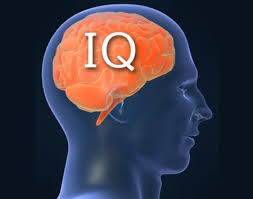Several years ago I taught a critical thinking course. I asked students why they thought some people are better at solving problems than others. They came up with a surprising array of reasons: poor diet, lack of exercise, childhood trauma suffered when trying to solve a problem, and bad teachers. In twenty minutes or so of open discussion, not one raised the possibility that some people are smarter than other people. When it comes to intelligence, our culture is radically egalitarian. Almost no one has a problem recognizing that some people have no musical ability or that some completely lack athletic prowess, but when it comes to intelligence; everybody has it, just in different ways.
The prevailing view is that there are different sorts of intelligence and different learning styles. This view is based mostly on anecdotal evidence, but as someone said, the plural of anecdote isn’t data. There are hundreds and hundreds of studies showing that general intelligence (GI) as measured by IQ tests is the single most effective predictor of life outcomes such as success in school and on the job and general well-being, including a person’s chances of divorcing, dropping out of high school, being unemployed, or having illegitimate children.
Objections to the idea of a general intelligence usually go something like this: “We tend to equate intelligence with academic intelligence. But an intellectual who understands Wittgenstein may be completely useless when it comes to repairing a toilet. A scientist may not have the emotional intelligence to maintain a stable relationship.”
But these objections are based on stereotypes about awkward, nerdy intellectuals and reflect an anti-intellectual bias in the culture. It’s not as though academic and mechanical skills are mutually exclusive. Surely there are more Wittgenstein specialists who can do plumbing than plumbers who can understand Wittgenstein. Scientists actually have a very low divorce rate (8.9 %), compared to, say, massage therapists (38.22%).
http://divorce.lovetoknow.com/Divorce_Rate_Statistics_by_Occupation
Those who insist that intelligence comes in a variety of flavors are simply confusing intelligence with personality traits and knowledge. Take the Republican presidential candidate Ben Carson, a prominent brain surgeon who thinks that being gay is a lifestyle choice and that Obamacare is the worst thing to happen since slavery. Does Dr. Carson have brain surgeon intelligence but lack the sort of intelligence that makes one a liberal Democrat? No, Dr. Carson is a fundamentalist evangelical Christian who has embraced an extreme right-wing ideology. Highly intelligent people can be abysmally ignorant about matters outside their specialty, but although stupid people tend to be ignorant, ignorance in itself does not equal stupidity.
Despite egalitarian fantasies, nuclear physicists are not only more intelligent than most of the rest of us, they’re also on average healthier, happier, and more prosperous. Life isn’t fair.

I like this post, Alan. Tell me: Is it true that there are “different learning styles”, or do you put that in the same category as different types of intelligence? I’ve attended seminars on teaching effectiveness where the message was to vary the teaching approach throughout a class so as to accommodate “different learning styles”. I was too old-fashioned to pay attention to that advice, and I’ve never felt guilty about that!
LikeLike
There isn’t a lot of evidence for different learning styles: http://www.scientificamerican.com/article/is-teaching-to-a-students-learning-style-a-bogus-idea/
LikeLike